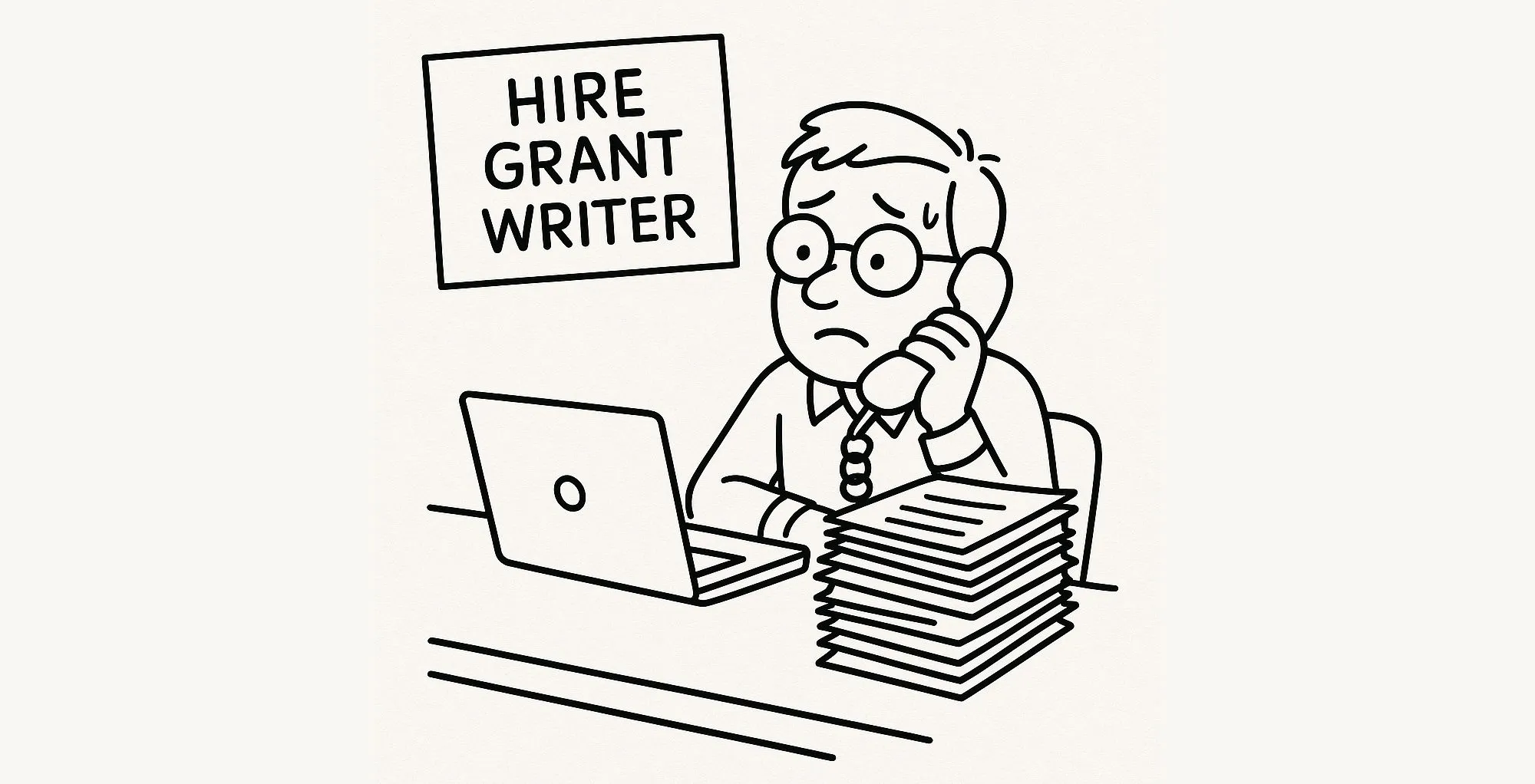When Does It Actually Make Sense to Commission a Grant Writer?

You're staring at another grant opportunity, juggling a dozen other priorities, and thinking: "Should I just hire someone to handle this?" It's a question many not for profit leaders ask themselves, usually at 11pm on a Tuesday when the grant deadline is looming and the annual report still isn't finished.
The decision to commission a grant writer isn't simply about being time poor or having a healthy budget. There are some practical considerations that can help you work out whether bringing in external support actually makes sense for your organisation, rather than just being an expensive way to feel like you're doing something.
The Value Question
Let's start with the uncomfortable truth: smaller grants and professional grant writers don't always mix well financially.
If you're pursuing a $5,000 grant and a grant writer's fee is $2,000, you're already looking at a significant chunk of your potential winnings going towards the application process. For not for profits operating on margins thinner than a rice cracker, this creates a real dilemma.
Here's the thing – winning grants is never guaranteed. Engaging a grant writer for smaller opportunities means you're taking a financial risk that could strain your organisation's resources, especially if the application is unsuccessful. Unless your organisation has solid financial buffers (and let's be honest, which not for profit does?), this gamble might not be worth it.
Smaller grants are generally best handled in house, where the cost is absorbed through existing staff capacity rather than additional expenditure. Yes, this means Sally from admin might be writing grants at 4pm on a Friday, but at least you're not gambling your operational budget on it.
The Capacity Trap
But here's where it gets properly tricky. What if you genuinely don't have the internal capacity to write the grant yourself?
Before you pick up the phone to commission a grant writer, you need to ask yourself a different question: Do you have the capacity to work with a grant writer?
As the wise Raphaël Dubois once said: "Hiring a grant writer when you're too busy is like hiring a personal trainer when you're too tired to go to the gym. Technically possible, but missing the point entirely." (Disclaimer: Raphaël Dubois is not a real person. We made him up. But he's right!)
A grant writer isn't a magician who can conjure your organisation's story out of thin air. They need you to provide the information, the data, the stories, and the evidence that makes your application compelling. If you're too busy to write the grant yourself, you're probably too busy to support a grant writer properly.
Without your input and collaboration, even the most skilled grant writer will struggle to produce quality work. They can structure sentences beautifully and craft persuasive narratives, but they can't tell your unique story. They don't know about that transformative program you ran last winter, or the community partnerships you've built over five years, or why your approach is different from the seventeen other organisations doing similar work. Only you can provide that gold.
The Bottom Line
Before commissioning a grant writer, consider these two factors:
- Grant value: Is the potential funding substantial enough to justify the cost, or are you basically just redistributing grant money to consultants?
- Your availability: Can you dedicate time to work closely with the grant writer, or will they be emailing you increasingly desperate questions while you're ignoring them in meetings?
If both answers are yes, engaging professional support could be a smart move. If either answer is no, you might need to rethink your approach. Sometimes the best solution isn't outsourcing. It's being selective about which opportunities you pursue in the first place, or accepting that not every grant that exists is a grant you should chase.
Think of it this way: just because someone's offering free money doesn't mean it makes sense to spend money trying to get it.
